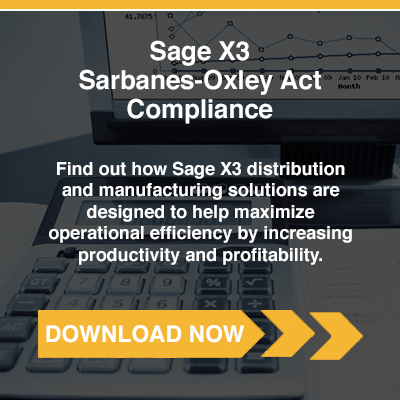An enterprise resource planning system (ERP) is a useful addition for businesses across many industries. However, this type of system often contains private information, potentially from customers and vendors, as well as data the business needs to keep confidential. A data security breach in your company's ERP could be extremely damaging to the business, as well as to those whose information is released. Protect your business and your private data by maintaining the security of your ERP.
Stay Up-to-Date
The first step in managing ERP security is making sure the version of the system you are using is always the most current. Cloud-based ERPs will typically update automatically, but in-house systems may require manual updates. The provider of your software will make periodic updates to improve or maintain functionality, reduce security risks, and close potential gaps in protection. When you're not running the latest version, your company's data could be exposed.
Exploiting vulnerability in a program is a common tactic employed by cybercriminals, so they'll look for ways to get into the system. The developers on the other end of the software are working diligently to make sure this doesn't happen. However, they can only protect your information if you use the latest version of the software that has any required fixes applied.
Thorough Training
Your employees may mean well, but they could allow breaches to happen because of mistakes in the way they use the ERP. It is absolutely crucial to make sure every employee who will use the ERP goes through rigorous training, focusing on the importance of security, how to reduce the risk of breaches, and the overall usage of the system. Training should be handled by members of your IT department to make sure everyone is getting the same information about best practices and system usage.
Control Access
Along with adequate training, it's also important to restrict access to the ERP only to those who need to use it. Certain components of the system probably aren't necessary for team members in specific departments to do their jobs. Therefore, reduce the risk of a security breach by restricting who can access what is in the ERP. It's especially important to control access to particularly sensitive information, such as HR details, employee data, or company financials.
Know Who to Call
Your ERP should come with access to a support team in case a problem does arise. If you experience an issue with the security of your system, make sure you know who to call and act immediately. By getting the necessary support as soon as possible, you could potentially reduce the severity of the breach or get more insight into how it was caused.
With the right setup and protocols in place, your company's ERP can be safeguarded against security breaches and major concerns. With Sage Enterprise Management, a leading ERP solution, you don't have to worry about security, as a team of professionals is working behind the scenes to protect your private data. Learn more about Sage Enterprise Management and its features that will help your company stay competitive while maintaining a secure atmosphere.


.png)





